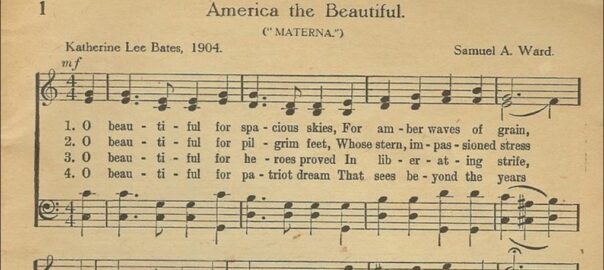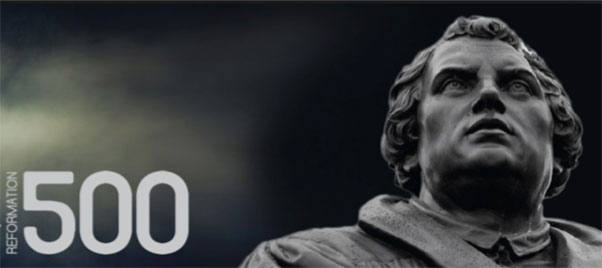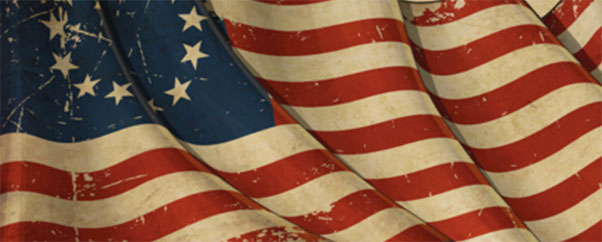
As we celebrate our nation’s 246th birthday, it is a good time for reflection on our historical and contemporary strengths and weaknesses, and rededicate ourselves to best ideals of the founders and framers.
Trigger warnings: If you regard America as the source of most of the evil in the world, you will be provoked by the essay. If you regard America as a divinely-chosen nation, you will be unhappy. OK, time for reflection.
American history has a few saints and many sinners. The founding of colonies such as Plymouth, Rhode Island, Maryland, and Pennsylvania with freedom of religion baked into their identities are a highlight of our history. The intolerance found in 17th and 18th century Massachusetts, Connecticut, and Virginia is tragic for liberty.
Slavery came crashing to our shores in 1619 and affected all American colonies, even where it was not widely practiced. The de facto and de jure oppression of million due to race violated everything later enumerated in the Declaration of Independence and the Constitution. This is why African Americans rightly speak of three American founding moments: the “promissory note” of 1776, the Emancipation of Juneteenth, 1865 with the passage of 14th and 15th Amendments, and the Civil Rights and Voting Acts of 1965. We are still overcoming the systemic evils of slavery and Jim Crow, but progress has been made.
Religious and social awakenings have helped the cause of justice throughout our history. Abolitionist movements, educational and labor reform, 70 years of work by the Suffragettes, and many more private and public initiatives have cleared the way for millions to enjoy a better life. We must celebrate these moments of progress and well as lament the evils they sought to overcome.
We have opened and shut our gates to immigrants during our 246 years. Like all Empires (yes, we are an empire, with the conquest of a continent and acquisition of oversee territories), a dominant tribe begins opening citizenship to others. For the USA, White Protestants have haltingly welcomed women and men from all cultures. From the despised Irish to the isolated Chinese, to a huge Central and Eastern European influx in the late 19th and early 20th centuries, along with the variegated hospitality to Hispanic/Latino neighbors. At times we fulfilled the words of the Statue of Liberty and welcomed the “huddled masses.” At other times, xenophobia overtook justice and Fortress America with all its toxic narrowness took over. Such evil kept thousands of Jews from finding refuge during the Shoah. Other times it was non-European groups that were systemically kept out. Ironically, the current non-policies for immigration allow foreign money to buy influence and open our doors to whoever can pay, while denying many hard-working folks opportunities and pathways to citizenship.
America is a land of economic opportunity, and, in the last half-century, a generous benefactor to those who struggle. We are still the land of promise for millions, while we struggle to reform bad welfare policies and poor educational systems that keep too many citizens from flourishing. Once again, a mixture of greatness and deep flaws.
Finally, our treatment of the Indigenous Peoples from the 17th century to the present was uniformly unjust, with only a few exceptions led by missionaries and visionaries. Exploitation was unnecessary – we could still have fashioned our free land without breaking every treaty, forcible conquest and exile, and maltreatment of cultures quite divergent from the European imports. Only repentance, economic repair, and humility can begin repairing this history. Yes, the Indigenous were not all virtuous, and one can argue that there were moments of violence perpetrated on colonists and settlers that were evil. But the proportionality is clear, and the Christian and Enlightened ideals of the (mostly) White conquerors were subverted by greed and racism.
Finally, our history has been punctuated with marvelous religious and social awakenings that further the cause of liberty, and enshrining freedom of conscience/religion in the First Amendment has made all religious communities stronger and self-sufficient. We remain one of the few nations in the world where anyone can peaceably start a religious community without permission from the government (unless you desire tax-exemption). Right now, we can assemble and practice our faiths with no interference from the state. Yes, there are complications and exceptions, but this remains the most enduring legacy of our American Experiment.
So, let’s raise a toast, and fall to our knees. Let’s celebrate opportunity and lament injustice. Let’s labor so all can flourish, and humbly ask for divine help. Happy Birthday, USA!


